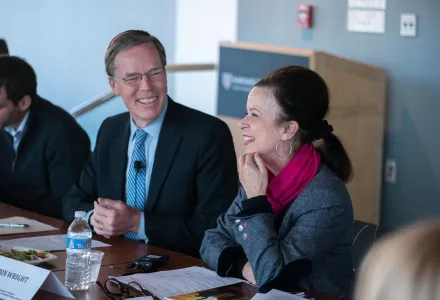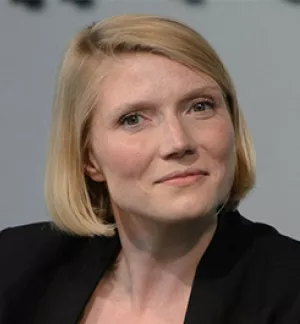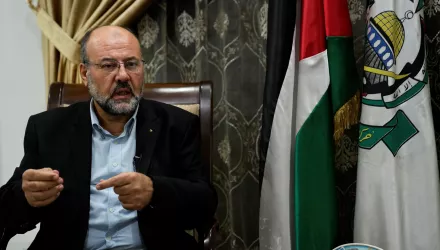
The ISIS threat is “metastizing” and Al-Qaeda is “marbling” instead of diminishing, according to Robin Wright, long-time investigative reporter and columnist for The New Yorker. Wright spoke to an audience of fellows, students, and faculty as part of the Future of Diplomacy Project’s international speakers series on October 2, 2017. In conversation with the Project’s Faculty Director, R. Nicholas Burns, she evaluated the health of Al-Qaeda and the Islamic State of Iraq and Syria (ISIS), intra- and inter-state relations in the Middle East, and citizens’ growing political interest.
Despite losing territory since May 2015 and fighters in the tens of thousands, ISIS still holds 37 “provinces”. ISIS has demonstrated its ability to attract and mobilize foreign fighters and wage attacks abroad. Al-Qaeda, though initially threatened by the rise of ISIS, has evolved and reasserted its primacy as the “vanguard of global Jihadism.” Strategically, Al-Qaeda has adopted a “marbling” technique, investing in and coopting national movements into its organization. Though that has mixed results, it gives the global movement a foothold in-country. Comparing the two, Wright noted that ISIS is ultimately an extremist organization with political interests, while Al-Qaeda is a political organization with extremist tactics. Now, Al-Qaeda even appears more pragmatic and humane of the jihadists.
"We make a mistake in trying to profile these movements, from Hezbollah to ISIS. Most aren't motivated by theology.” Jihadi movements are growing more diverse and disperse, she said, which benefits ISIS and Al-Qaeda.
Across the Middle East, it is disillusionment, disenfranchisement, and conflict that incubates and fuels ISIS and Al-Qaeda. “Mosul is a microcosm of Iraq,” Write described. Without a plan to share power among Sunnis and Shia’a now that ISIS has lost control of Mosul, Mosul residents and returning refugees will not have hope for rebuilding institutions or reconstruction; for rebuilding their lives. The instability and uncertainty will benefit ISIS as it is driven underground in Iraq. Even Iraqi President Al-Abadi’s promises for national power sharing could lead to conflict, if Shia’a rejected the reforms. Meanwhile, Kirkuk has held a referendum for independence from Iraq that saw a 90% vote in favor.
Speaking in more general terms about the region, Wright calculated that President Al-Assad in Syria will face greater difficulty providing for Syria’s people in peacetime than he had holding on to power. Saudi Arabia, she noted is facing its own - long-tamped down - instability, particularly among its Shia’a minority. Iran’s populace is more and more divided over whether it is primarily an Islamic state or a republic. Are the states in the Middle East and their borders still viable, Wright asked, echoing Middle East scholar Fred Halliday and former Secretary of State Condoleezza Rice, among others.
“More turmoil and potentially conflict seems likely,” Wright said. The conditions that drove the Arab Uprisings remained, only today, the majority of Middle Easterners are literate and have access to different, non-government-controlled media and social media. Citizens’ political interest and expectations are growing, which could further challenge the status quo. Universally people wanted rights.
“The Middle East is not an exception in the world,” she said. “Everyone wants rights, but building a common good is not the norm yet within countries. People still want a little bit more than their neighbor and this is seen around the world. It is a work in progress.”



